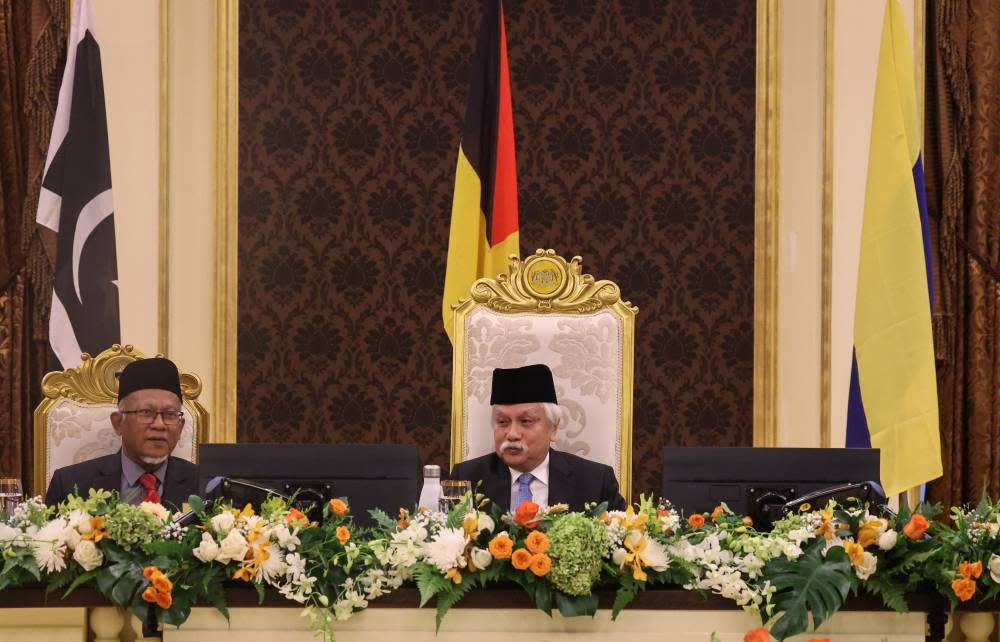Negri Sembilan Ruler proposes PM no longer appoint members of judges’ nomination panel

KUALA LUMPUR, Nov 30 — The Negri Sembilan Ruler today proposed the removal of the prime minister’s role in appointing members of the Judicial Appointments Commission (JAC), a panel which nominates prospective new judges.
Stressing the importance of ensuring the independence of enforcement agencies and the judiciary from external influence in carrying out their duties, Negri Sembilan Yang di-Pertuan Besar Tuanku Muhriz Tuanku Munawir said the current process of appointing judges in Malaysia has weaknesses that can be improved.
The Negri Sembilan Ruler noted that the JAC currently plays the role of proposing judicial nominations and said the JAC membership was critical to ensuring it is capable of presenting the name of judges with integrity and of a high calibre.
The JAC has nine members, four of whom are the most senior judges in Malaysia, while the remaining five are individuals appointed by the prime minister.
“To ensure the JAC is free in carrying out its responsibilities, I propose that the appointment of the five JAC members not be made by the prime minister. Instead, be given to several other institutions such as the Malaysian Bar, the Sabah Law Society, the Advocates Association of Sarawak and Parliament Select Committee.
“With such a method, the JAC membership will be more balanced, and will not carry the interests of any quarters,” the state Ruler said today in his speech in conjunction with his chairing of the 260th meeting of the Conference of Rulers which was held both yesterday and today at Istana Negara.
The Negri Sembilan Ruler also proposed for the JAC structure to be re-evaluated, following discussions with the government, existing JAC members, professional legal bodies and other relevant institutions and stakeholders.
“If all these are carried out, I am confident the JAC will be capable of carrying out its responsibilities more effectively and resulting in the selection and appointment of judges in Malaysia being from individuals who are of noble character, transparent and just,” the Ruler said.
Among other things, the Negri Sembilan Ruler also urged the new federal government to cultivate the “spirit of togetherness” among multireligious, multiracial, and multicultural Malaysians.
“I hope there will be no more leaders who raise racial or religious issues with the intention of inciting the public,” the Ruler said.
The appointment of judges of the superior court — judges at the Federal Court, Court of Appeal, and High Court — was one of the issues discussed by the Conference of Rulers.
The Judicial Appointments Commission Act’s Section 5(1) provides for the commission’s members to be nine individuals, including the four top-ranking judges in the country, and a Federal Court judge appointed by the prime minister.
The remaining four are to be eminent persons also appointed by the prime minister — after consulting the country’s three professional bodies for lawyers (Malaysian Bar, Advocates Association of Sarawak and the Sabah Law Society), the country’s attorney general, and a state attorney general.
The JAC’s functions include selecting suitably qualified persons who merit appointment as judges of the superior court for the prime minister’s consideration.
But after the JAC goes through the process of selecting suitable candidates for judges and submitting its report to the prime minister, the prime minister can request for two more names to be selected and recommended to him for his consideration when it comes to the top four judicial positions and for vacancies for judges at the Federal Court and Court of Appeal level, based on the JAC Act.
After accepting any of the recommended candidates, the prime minister then advises the Yang di-Pertuan Agong over their appointments to the positions.
In 2018, the Malaysian Bar’s then president George Varughese proposed that the government carry out reforms on the judiciary by setting up an independent JAC under the Federal Constitution that will be tasked with making “recommendations directly to the Yang di-Pertuan Agong”.
The Institutional Reforms Committee (IRC) in 2018 had said it planned to recommend changes to the JAC’s composition and judge selection process, pointing out that the submission of names to the prime minister and his right to request more names in a way enables him to reject candidates.



